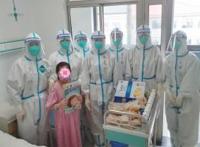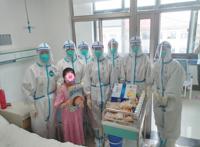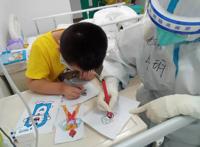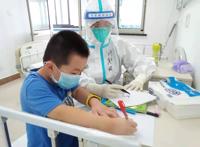《抗击新冠肺炎疫情的中国行动》白皮书(双语全文)(92)
2023-06-03 来源:旧番剧
(三)平衡疫情防控与经济社会民生3.Coordinating Prevention and Control with Social and Economic Development在毫不放松加强疫情防控的同时,稳妥有序放开经济和社会活动,做好“六稳”工作,落实“六保”任务,形成同疫情防控相适应的经济社会运行秩序,努力将疫情对经济社会发展的冲击和影响降到最低,为抗击疫情提供有力的物资保障和社会保障。Without compromising Covid-19 control, China has steadily resumed social and economic activities in an orderly way, so as to stabilize the six fronts (employment, finance, foreign trade, inbound investment, domestic investment, and market expectations), and guarantee the six priorities (jobs, daily living needs, food and energy, industrial and supply chains, the interests of market players, and the smooth functioning of grassroots government).It has fostered a social and economic order under the conditions imposed by Covid-19 control and striven to minimize their impact on social and economic development, thus providing a strong material and social buttress for the fight against the epidemic.
保持社会稳定、有序运转。着力加强社会安全稳定工作,加强社会治安管理,强化防疫物资质量和价格监管,维护市场秩序和社会稳定。及时出台受疫情影响困难群众兜底保障政策,有效保障基本生活。将心理危机干预纳入疫情防控,妥善处理疫情防控中思想和心理问题,加强思想引导和心理疏导,培育理性平和、积极健康的心态,及时预防化解涉疫矛盾纠纷。疫情大考下,在交通管制、全民居家隔离等严格管控措施的情况下,不论是城市还是农村,水、电、燃气、通信不停,生活物资供应不断,社会秩序不乱,食品、药品、能源、基础工业品、基本公共服务等关系国计民生的重点行业有序运转,14亿人民的基本民生得到有效保障,经济社会大局保持了稳定有序。Maintaining social order and stability.China has made every effort to ensure social order and stability, market order, public security, and supervision over the quality and pricing of epidemic-control supplies. It has adopted timely policies to ensure the basic livelihood of people in difficulties caused by Covid-19. Psychological counseling is provided to ease distress, nurture a healthy mindset, prevent and resolve potential problems, and defuse local disputes.Despite strict measures such as traffic control and home-based quarantine, the economy and society have remained resilient. The supply of water, electricity, natural gas and telecommunication services continues, as does the supply of daily necessities in urban and rural areas. Key sectors providing food, pharmaceuticals, energy, basic industrial products, and public services that are essential to social stability and people’s wellbeing are in normal operation, meeting the basic needs of 1.4 billion people.
猜你喜欢
动漫推荐
免责声明:动漫番剧数据来源网络!本站不收费,无vip,请勿上当!
www.jiufanju.com-旧番剧


























